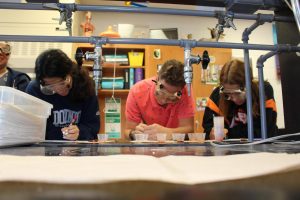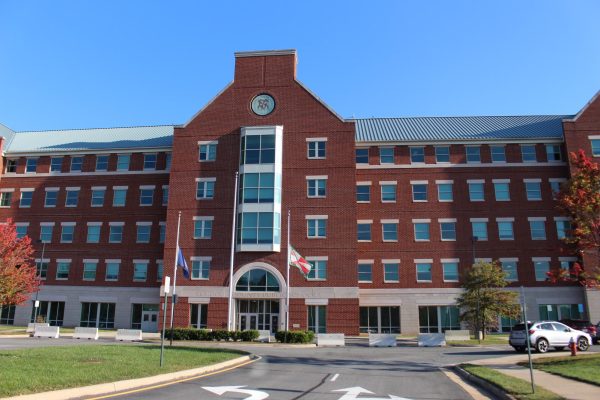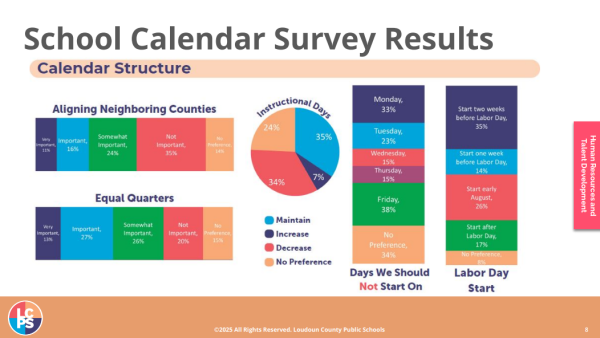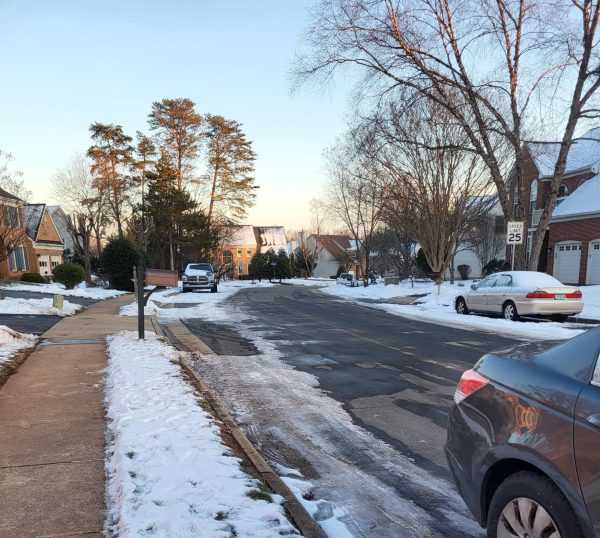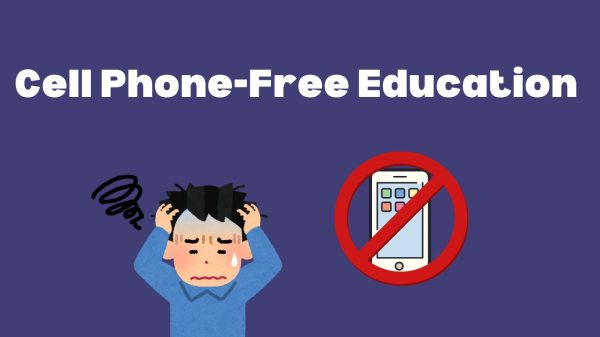Q&A: Dr. Brewer on the Return to School
There is a lot of uncertainty about the new circumstances of the 2020-2021 high school year. With the new school year starting up on Tuesday September 8, Dr. Brewer answered some prominent questions.
Q: In what ways do you think Dominion High School is better prepared for online learning this year than we were at the end of last school year?
A: This year, there was no emergency situation where online learning was thrust upon us with a phone call at five o’clock in the morning. We’ve known now for five months that there was a possibility of not going to school. That’s given us the time to plan for five distinct differences between what we were doing last spring, compared to what we’re doing now. Now we’re operating like this is our normal, and we’ve got to deal with it and make it good. So, the five things we’re going to do differently starts with a high degree of structure to the school day.
School days are going to seem a lot more like they did in the past, nine o’clock to four o’clock, with students being engaged virtually that entire time.
Second thing is that that engagement isn’t going to be what it was in the spring, where I think a lot of times, we as teachers were only prepared to get on a Google meet and talk at you for 25 or 30 minutes. We didn’t really know how to engage you from a distance.
So a second distinguishing feature this fall compared to the spring is how we will be able to use the best practices of teaching to make sure that you’re not just listening all the time.
Thirdly, we are going to have a new platform for learning called Schoology. And it’s
designed for the purpose of managing educational settings. Of course, there’s
Google Classroom, which is what many teachers were using in the past. Schoology is just a more well thought out tool, or a more versatile tool, for the purpose of managing a learning experience.
The final two things are that through this year your attendance will be expected in every class every day, and that you will be earning grades that are going to end up on your transcript, just as prominently as the ones you’ve ever earned before. So the stakes are much higher.
Q: Due to the uncertainty of online schooling, what will teachers be instructed to change about their teaching styles?
A: We’ve asked teachers really to focus on three things.
First of all, engage your students, have ways, even though you can’t be in the same room, for students to be engaged in lessons and think about the content, not just listen to the teacher lecture. So engagement is a real focus for the staff.
Second one would be consistency, and structure. So they need to be highly organized in order to make distance learning meaningful.
The third one I would say is, I use the word authenticity. We can’t teach all the details that we’re used to teaching. All the mathematical rules or the grammatical rules would be a little tough to do. We’re going to have to look at the big picture concept. So I’m hoping that teachers will engage you in projects, true life experiencences, solving problems, addressing immediate topics that need to be addressed like how on earth are we going to do school virtually? That’s extremely relevant. So hopefully we’re going to find touch points with relevance across the curriculum, and maybe focus less on, “can we use that formula?” It was a way to be a little more focused on the big picture.
Q: Could you go into detail about what the new grading policy is going to be, in a way that students could pretty easily understand?
A: The new grading policy puts emphasis on measuring what you know as a student, and what you are able to do. Past grading practices put a lot of emphasis on completing work, even if it wasn’t well done. You could enhance your grade by just doing what you were asked. So now you’re really on the spot to know your content and be able to show that you know it. I’d say that’s, in a nutshell, what distinguishes Loudoun County Public Schools this year opposed to last spring.
Q: Could you explain the required major summative assignments for the year?
A: Teachers have the autonomy to define what a major summative assessment is. I would fully expect that some things we might have used to think were minor will now be major. That’ll be necessary because we have such a limited amount of time to teach and learn. We can’t afford to lose entire blocks, giving lengthy tests and quizzes every block, it would just not be a good use of our time and resources in a distance learning environment. So I do think that these major summative assessments are going to be quite different than the past.
Q: With school being online for the first semester, what do you believe will happen for events like the homecoming dance, the homecoming pep rallies, and the homecoming football game?
A: I am extremely hopeful that in 2021, we’re going to have a fall sports season, and that we’ll be able to celebrate spirit week and homecoming. I don’t know if students are going to be able to wrestle. I don’t know if they’re going to be able to play basketball. I don’t know if they’re going to be able to play football. I don’t think we’re going to know that until we see what happens in other states. High school football has started in some states already. I don’t have a lot of impact on whether or not the Virginia High School League decides that we can play football, but hopefully we’ll be able to have a pretty traditional homecoming experience during our Winter/Spring football season. If that doesn’t happen, though, I do think that we’re going to play spring sports. I don’t know whether we’re going to be able to play Winter sports. I’m not sure we’re going to be able to play all the fall sports. I feel pretty confident that all the spring sports will be played. There are two reasons why I think that’s true.
The first reason is, it would be devastating for student athletes to lose two consecutive spring seasons. let’s just say we can’t have a homecoming spirit week here like we’re used to having it. We’ll try to have it in February, or early March, when football season is going on. If that doesn’t even happen, I feel really confident that it will happen in spring, and we’ll be able to have a homecoming week lineup with soccer, lacrosse, baseball, and other sports. It’ll be different, but I think it’s still quite rewarding. I do expect to have a prom. We have a date, and we have a location. I do think those things are going to happen in the Spring and Fall. I think we need to begin to position ourselves to think, we may be able to come to a school dance before we’re able to come to school. I know that sounds backwards and upside down, but it’s a real challenge to bring 1700 or 1800 or 1900 people into a building like Dominion High School, and keep them all safe and well until everybody’s vaccinated. A homecoming dance where we typically have 250 to 400 people, that we might be able to do. We might be able to be at the stadium for a football game, where the student body gets to come, but maybe nobody else does. Not that we want to do it that way, but I do think that we’ll probably be able to do athletic events before we’re going to be able to actually have everybody come back to school. I know that probably seems backwards to people, but that’d be my prediction about what will happen towards the middle of the school year.
Q: Since attendance is mandatory, what happens if a student has connectivity issues?
A: First thing we’re going to assume if a student is not in school, we’re going to be tracking this on the very first day next Tuesday, the first thing that we’re going to assume is maybe the student has moved, or is going to a private school, let’s find out if they’re going to be attending Dominion at all and get that kind of clear.
The second thing we’re going to investigate is, are there any life circumstances that are preventing that student from logging on? That could be that they have a lack of connectivity. It could be that there is an oldest sibling with five younger brothers and sisters. That older sibling is expected to be a childcare provider for several of the younger children in the family. So our second thing is going to be, are there any barriers to learning that we need to help this family remove? So we won’t necessarily be thinking first and foremost that somebody is in trouble because they haven’t shown up to class. Then there’s a reality you get down the list a little bit further and you say, you got to show up. There’s no excuse for you not to show up unless one of those mitigating factors apply, what we’re going to try to do to move any barriers that our students have. So, if it’s a, I’m not getting out of bed, or I’m just logging into the Google Meet to turn my camera off, we’re going to address that with a lot of love, but pretty aggressively, too. We can’t afford to have that happen with the limited schedule that we have this year. Classes are shorter, there’ll be four days a week instead of five, it takes longer to do things online. So we can’t squander any blocks with students not being present.
Q: Are there any virtual spirit days planned, or anything in the Fall for students to feel more connected to Dominion?
A: There will be specific plans for sure. And our SCA is formally coming together under the leadership of Mr. Haberman and Mr. Kroeze. They’ve had a couple of meetings already. We haven’t selected officers yet; that’s going to come. We usually do that in May, sometimes as early as April, but we really didn’t feel like it was appropriate to try to do that during the school closure. So those officers will be selected. People who really want to see Dominion High School pride, in spite of difficult circumstances have stepped up. They have a lot of really creative ideas about how we can be engaged socially with one another and respect the safety boundaries that are required to help us be well, so I think there’ll be some pretty cool things. I know they’ve run some ideas past me about ways that they can create engagement. Frankly, they’re not all virtual, some are, but they have some creative ideas about how they might do some things in relatively small groups. When I say small, the Governor orders, as I recall, 250 people or less. So they have some ideas about how they, within that parameter, can generate some exciting opportunities for the student body.
Q: If we end up not going back to school in the second semester, what do you believe will happen with sports?
A: Those decisions are going to be made independently, by two different groups of people. So the decision about when we return to school is going to be made by the Loudoun County School Board. The decision about when sports resume in the Commonwealth of Virginia on the high school level, is going to be made by the Virginia High School League. The Virginia High School League consists of all high schools, all across Virginia. So the Loudoun County School Board could certainly say, we’re not going to do sports, even if the Virginia High School League says that we can and they are going to. I don’t think they’d be inclined to do that, I think they would be inclined to let us play. So there will be two different groups of people making those decisions, and they could have two different outcomes. The mathematics of bringing everybody back to school, compared to bringing 33 people who play volleyball together back to school, the odds lean in favor of volleyball teams being safer than the entire student body. So that’s why I would predict that we’ll see sports before we see classrooms. Ordinarily, we would freak out about that, say we got our priorities upside down, but under these circumstances you have to kind of throw out that conventional thinking and realize that the ability to come together as a team and spend time together socially and work toward a goal, as long as you can do so safely, is so important. We’ve got to do it, even if we can’t get back, it’s cool. We want to start doing that as soon as possible, even if it’s too early for us to return to school in large numbers.
Q: What will happen with school clubs?
A: School clubs are going to start pretty much immediately. Next week, we’re going to start classes, and then on Monday, the 14th of September, we’re going to have a faculty meeting where one of the prominent agenda items is going to be getting students outlets for social engagement around things that they enjoy. So I expect the week of September 14 to start seeing the wheel spin on SCA activities, probably virtual dance team tryouts, auditions for our Fall play, which will undoubtedly be performed and produced from distance, through a virtual platform. We will try to engage clubs right away because we can. The things we do in clubs are more conducive.
Q: How can the students in the situation you mentioned, having to caretake at home, still fulfill their responsibilities at home, and fulfill their responsibilities at school, even if it means not being present during the synchronous learning time?
A: We’re going to hope that we are able to empower the family to remove some of those barriers. What if the family can’t? What if the family simply can’t remove those barriers, what then? That’s a question we have not crossed yet, in all things we have tried to prepare for, we just haven’t gotten to that nitty gritty. There’ll be some families undoubtedly in that situation. The good news is the vast majority of our students won’t be in circumstances that are that dire. So we figured if we can get it right for 99.8%, then we can work diligently on the handful of situations that are really, really difficult. We don’t have a plan for that, I have to admit, we’ll be flying by the seat of our pants on that, but we’ll figure it out. We’ll dig deep and figure out how to do it. I can’t say we don’t have any ideas. We have ideas, turning ideas into practical interventions, it certainly could be quite challenging. So we’ll have to cross those bridges when they come up.
Q: If a student doesn’t miss a surplus of classes without a valid reason, or if they are interrupting their classes, what sort of disciplinary measures can they expect?
A: We certainly hope that doesn’t happen. What we were able to do in the spring because we didn’t have a lot of these situations, we were able to work with administrators and other schools, and certainly parents, to quickly say, for our expectations during this time, your behavior doesn’t currently align with them, and you’re going to need to get your behavior in line. We hate to say it, but one thing that might have to happen is the removal of a student from learning opportunities. If they continuously refuse to be respectful and engaged, then I will admit again, sometimes badly behaved students stopped coming to class, and that’s not going to be an option this fall, so we have to cross that bridge. Essentially, we’ll work with teachers and parents. In the spring, we had administrators sit in on Google, and kind of be the bouncer to say, “Hey, if you go fool around right here in front of the principal, maybe you want to do that, but I might just show up at your house and talk to your parents.” Those are the types of things we would do. It would be handled more relationally than we would from a punishment standpoint. I think that we really will have to step up and be responsible during these atypical circumstances.
Q: What are some common expectations that students can expect in their online classes?
A: We hope that the standard is camera on, mic off, and we would hope that’s almost always the case. Obviously, the exception with the mic is when it’s your turn to participate actively and directly. When we call overtly in our professional business over things everybody can hear and see, you’re participating. Camera off would be pretty rare, commotion in the house that you can’t control, you’re not feeling well, you really do have an emergency and you need to go to the restroom, things of that nature. By and large, we would hope that 99% mic off and camera on.
We expect students to get up in the morning, get dressed like they’re going to school. They should be fully clothed, groomed, looking respectful. We need to expect that the background is pretty appropriate. It should look like a studious environment. We need students to pay attention to their surroundings. There shouldn’t be distracting things like pets in the view or inappropriate things.
More positively, another expectation would be having all materials right here at your desk. You’ve got paper, you’ve got pencils, you’ve got all the things that I need to be successful, in addition to the fact that my Chromebook is charged or charging and functioning properly.
Lastly, and very importantly, there has never been a more important time for students to be able to separate themselves from their personal technologies that become such a powerful distraction. We can’t take your phones in a Google Meet, right? So you got to make really good choices about how you’re going to use social media or preferably not use social media and other things during synchronous learning time.
Q: What’s going to happen if a teacher can’t log into their class, such as if they’re having connection issues?
A: There’s going to be sometimes when that takes us by surprise and we’re going to have to deal with it. That means there’ll be some lost instructional time. I suppose in some respects, that would be kind of like an unexpected fire drill, or some sprinkler head goes off accidentally, or a pipe breaks or something, or if a sensor goes bad. Sometimes things like that happen. They’ll happen more frequently in distance learning because sometimes teachers will have unexpected outages, which will be much more disruptive than individual students having outages. Now, if that’s going to be an ongoing problem we’re going to ask the teacher to come teach in the building here and we’re going to make sure they have space where they have all the resources that they need. I would say occasional disruptions are to be expected. Ones that we can predict, we’re going to eliminate those barriers so that they’re not a problem.
Q: How will students meet with counselors and individual teachers?
A: We’ll use a lot of Google meet, never alone, either with a parent, another student, or at least two adults present. Google Meet will be huge. We’ll use Google Meet a lot. We’re probably in a circumstance where there could be a few times when a parent might bring the student to talk about the student’s behavior. They could do face to face. Let’s sit face to face, from distance, with masks, and let’s talk about this so we can make sure this doesn’t continue.
Q: What about if students want to see a counselor during the day?
A: We’re always going to ask them to think about using their Titan Time to do so.
Q: Is there anything else that you would want students to know about this coming year?
A: I think the thing I would want everybody to know is, we’re not going to punt, this is not fourth down. This is first down, and we’re going to throw and we’re going to throw deep. We’re going to invest in making distance learning a valuable, engaging, and enjoyable experience. We’re not just going to assume that we can’t enjoy social interaction with one another. We’re going to push hard to make our class of 2021 Senior year the rewarding experience they expect it to be. That’s what I would say. This is not going to be fourth down, and we’re not punting. This is first down, and we’re going to try to score a touchdown, and hurry with doing the right things and doing the work.
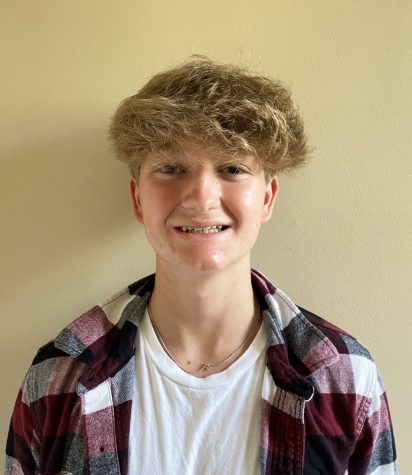
Tyler Whitfield has been a writer for DHS press since 2019, but he has also moved into doing work in the broadcasting field. Tyler works on topics of all...




